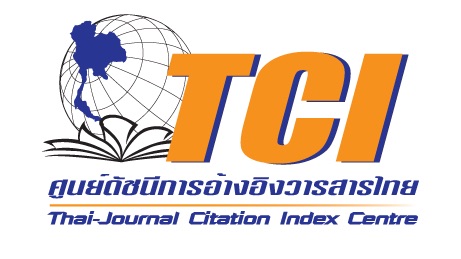The Research of Chinese Idioms Reflecting Chinese Culture for Chinese Idioms and Proverbs Course at Rajabhat University
Keywords:
Chinese Idioms, Chinese Culture, Chinese Idiom and Proverb CourseAbstract
The objective of this research paper is to study the sources of Chinese idioms that reflect Chinese culture and suggest guidelines for teaching Chinese proverb courses. The research tools are books or documents about Chinese idioms and research questionnaires.
The researcher divides the study into 2 types, which are researching from the documents and conducting research questionnaires. The research questionnaires were divided into 2 study groups. They are students who study in Chinese proverb courses and instructors who teach in Chinese proverb courses. The results of the documentary study revealed that Chinese idioms reflect 8 aspects of Chinese culture, which are life experience, personality traits / living expression, human behavior, Beliefs/Thoughts/Attitudes, speech, human characteristics, relationship with people, friends, and relatives, and different type of sources. The sources also divide into 4 main categories, which are (1) Idioms derived from proverb tales teach the mind and ancient fairy tales. (2) Idioms derived from stories or historical figures. (3) Idioms come from literature. (4) Newly created idioms. The results of the questionnaire show that students can apply Chinese idioms or Chinese proverbs in two areas, which are the application of Chinese idioms learned in Chinese communication and the application of Chinese idioms learned in the Chinese Proficiency Test (HSK).
The students can apply the knowledge from the classrooms in either daily communication or Chinese Proficiency Tests in the real world.
References
วนิดา ตั้งเทียนชัย. (2552). สำนวนจีน : โครงสร้างทางภาษาและเจตนาการใช้. มหาวิทยาลัยธุรกิจบัณฑิตย์.
สิริวรรณพิชา ธนจิราวัฒน์. (2558). การศึกษาเปรียบเทียบภาพสะท้อนทางวัฒนธรรมผ่านสำนวนไทย จีน และอังกฤษ. JOURNAL OF LANGUAGE, RELIGION AND CULTURE, 5(1), 59–82.
Jwon Eun Kyoung. (2018). A study on Chinese Idioms in “Boya Chinese” (Flying Articles I and II). Shandong: Shandong University.
Li Xiaojuan. (2014). The traditional culture and the junior middle school language teaching research—Sue Chinese textbooks for junior middle school, for example. Soochow: Soochow University.
Downloads
Published
How to Cite
Issue
Section
License
Copyright (c) 2023 Journal of Human and Society, Sisaket Rajabhat University

This work is licensed under a Creative Commons Attribution-NonCommercial-NoDerivatives 4.0 International License.







